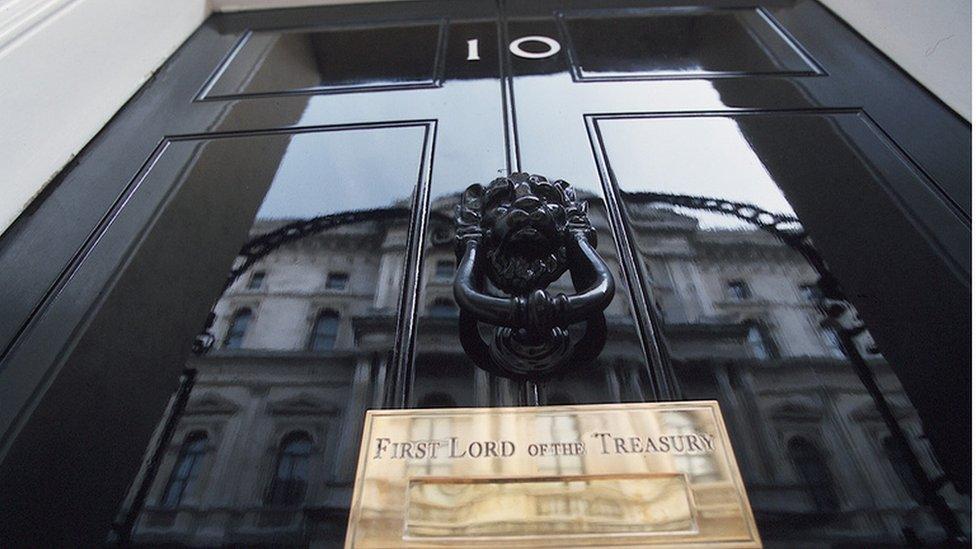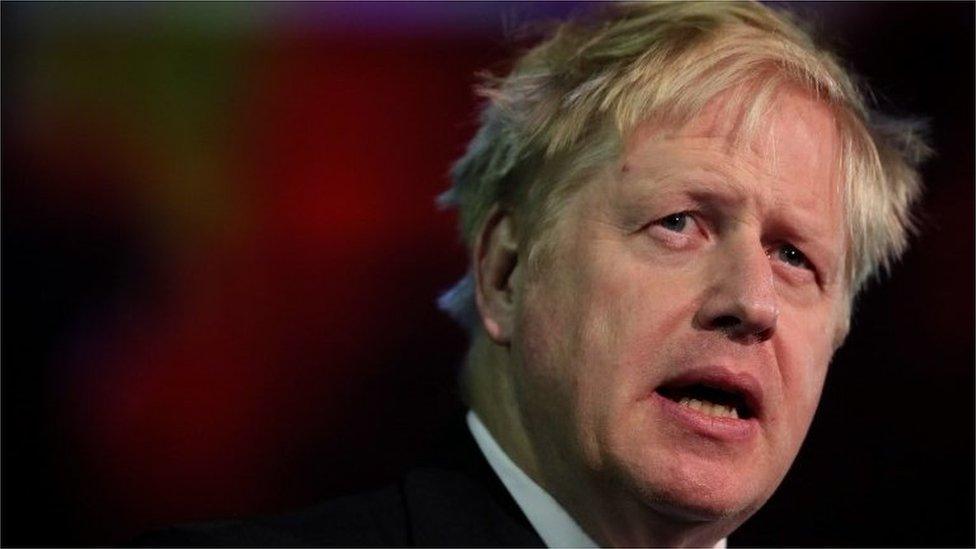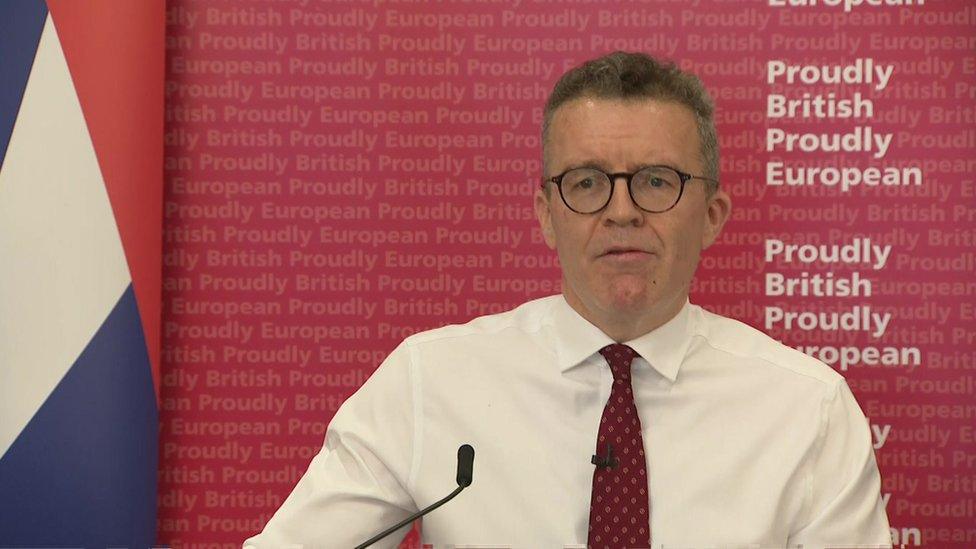Midlands at the centre of new political battlefield
- Published

"They think it's all over...."
Even before the Conservative leadership contest reaches its month-long extravaganza of hustings culminating in the party members' vote, there is such an air of inevitability about the outcome that I hear echoing in my mind the words of the late, great, football commentator Kenneth Wolstenholme, just moments before Geoff Hurst leathered-home his third, and England's fourth, against West Germany in the 1966 World Cup Final at Wembley: "It is now!"
And already thoughts are turning towards the new political battlefield which could take shape under a Boris Johnson government. And not for the first time, our part of the country is set to find itself in the centre of it all.
Whatever Mr Johnson's undoubted talents, the head of the Tories' biggest donor group warns that whoever becomes PM "would have to be superhuman to succeed" in forging a path "that delivers Brexit, rejuvenates the economy and gives hope to those hit by austerity that they have not been forgotten - the working class communities for which Farage has become a poster boy".

Boris Johnson secured the highest number of votes in the first MPs' ballot to select the Conservative Party leader and next prime minister
So writes the chairman of the Midlands Industrial Council, Johnny Leavesley, head of the Leavesley Group of property developers based near Burton-on-Trent in Staffordshire. In his article published in The Daily Telegraph before Tuesday's second MPs' ballot, Mr Leavesley raised the possibility of an electoral pact with Nigel Farage's Brexit Party:
"Many senior Tories would no doubt find alliance with the Marmite-flavoured Farage a repugnant proposition, but reality should force what could be a very convenient marriage. Farage knows he can't win a general election outright and many Conservatives will realise that is also their truth. A Brexit-Conservative Pact might lose the Tories many of their liberal supporters, but it would give clarity over Brexit and be the key to enough popularity to save them. In essence, the next PM needs to be willing to work with Farage."
Meanwhile on the other side of our Midlands divide
By one of those coincidences that happen only in real life, Mr Leavesley's article hit the streets just hours before Labour's deputy leader, the West Bromwich East MP Tom Watson, made his most outspoken intervention so far in the other side of the argument. To clarify Labour's position as the party of Remain, he urged it "strongly" to make the case for the UK staying in the EU, reiterating his push for another referendum to break the deadlock:
"Our members are Remain. Our values are Remain. Our hearts are Remain," he said. Labour had been "scared to tell the truth about the EU (and had) whispered not shouted its support".
Mr Watson was speaking in London, where this message undoubtedly commands resounding support within the Labour Party and beyond.
But it's a very different picture among traditional Labour voters, especially in his Black Country home region and in North Staffordshire which voted overwhelmingly to Leave the EU and where the Conservatives captured Walsall North and Stoke-on-Trent South from Labour on the tide of Brexit sentiment at the last general election. These places are also where the Brexit Party polled most heavily in last month's European elections.

Labour deputy leader Tom Watson has said the party must argue strongly for Remain
This may go some way to explain why Jeremy Corbyn has repeatedly rejected calls to back either another referendum or a campaign to remain: plus, of course, the 30 years he spent on his party's backbenches as a committed critic of the European Union.
Mr Watson denied suggestions his speech was an attack on his leader. But there's no question it highlighted yet again the scale of the divisions facing the party, especially if we join the dots which signpost a possible Autumn showdown.
Snap election?
Conservative leadership contenders may scoff at the idea of another early general election and many of their MPs undoubtedly dread it after Theresa May's failed gamble in 2017 to deliver "strong and stable government".
But speculation is mounting just the same that an incoming prime minister may see it as the best way of changing the Parliamentary arithmetic.
I wonder if Messrs Leavesley and Watson may just have touched on the definition of new political battleground, indicating a clearer division between the Conservatives as the Leave party, especially in our Brexit-supporting part of the country; and Labour as the avowedly pro-EU party committed to keeping us in.
What makes their interventions most intriguing is that each of them thinks he has found a way in which his own party might win it. In the process, they may also have explained why our famous Midlands marginal seats could once again be the key landmarks in this new electoral battlefield.
